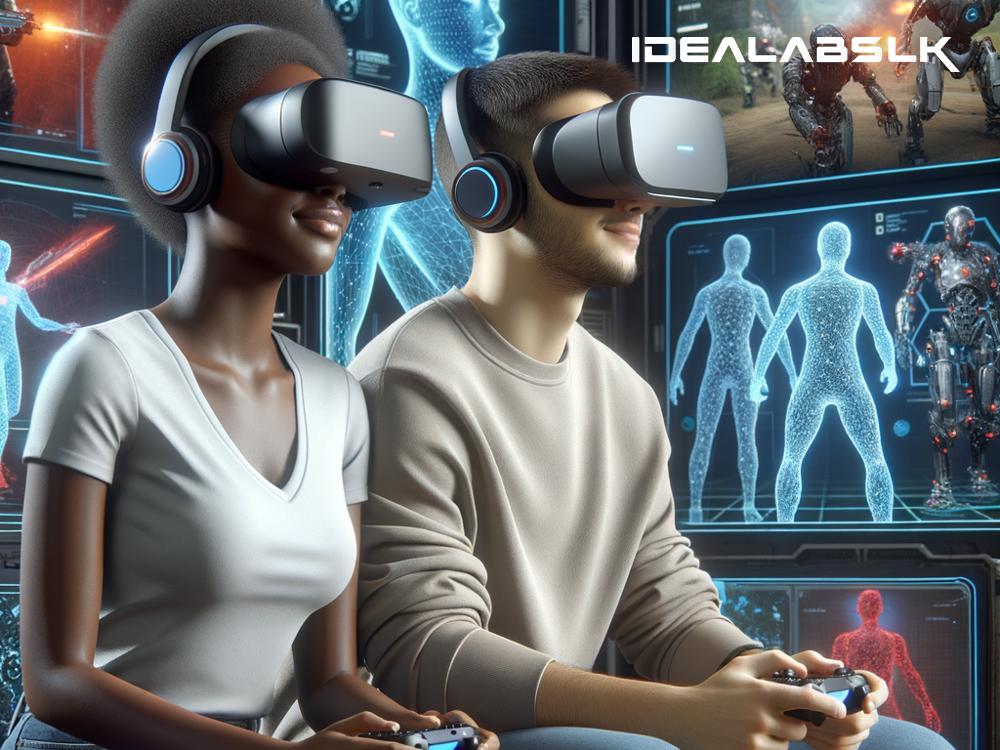How AI Will Influence Player Behavior and Interaction in 2025 Multiplayer Games
The gaming world is on the brink of a revolution, thanks to advancements in artificial intelligence (AI). By 2025, we're expected to see multiplayer games that are more immersive, interactive, and realistic, largely because of the integration of sophisticated AI technologies. This leap forward will not only change the way games are made but will significantly influence player behavior and interaction within these virtual worlds. Let's dive deeper into the future to understand how AI is poised to redefine our gaming experiences.
Tailored Game Experiences
One of the most significant ways AI will impact player interaction is through personalized gaming experiences. Imagine playing a game that adapts to your playing style, offering challenges and rewards tailored to your skills and preferences. AI algorithms will analyze your gameplay, learning how you play, what you enjoy, and where you struggle. This means that games will become more engaging and enjoyable, as they'll constantly evolve to match your skill level and interests.
This personalization will encourage players to experiment more within the game, knowing that the game itself will adjust to accommodate different strategies and approaches. The result? A richer, more dynamic gaming experience that keeps players coming back for more.
Smarter NPCs
Non-player characters (NPCs) play a crucial role in enriching the gaming world, providing quests, challenges, and storytelling elements. By 2025, AI-driven NPCs will become more intelligent and responsive, capable of complex interactions that were previously impossible. These NPCs will remember past interactions with players, react according to the player's behavior, and even develop relationships with them over time.
For example, if a player consistently helps a particular NPC, that NPC could become a loyal ally, offering unique support or valuable information. This level of interaction will make the game world feel more alive and reactive, significantly enhancing player engagement and immersion.
Enhanced Social Interaction
Multiplayer games are not just about competing or cooperating within the game world; they're also about forming connections with other players. AI can enhance these social interactions by facilitating communication and helping to foster communities within the game. For instance, AI could translate chat messages in real-time, allowing players from different parts of the world to communicate effortlessly.
Additionally, AI could help match players with others who have similar playstyles or interests, making it easier to find friends or form teams. This will lead to a more connected and vibrant community, where meaningful relationships can be formed and nurtured.
Ethical Gaming Environments
As multiplayer games become more complex and realistic, maintaining a healthy and positive gaming environment is more important than ever. AI can help by monitoring player behavior, identifying and mitigating toxic behavior, and rewarding positive interactions. With AI oversight, games can become safer spaces where players are encouraged to be respectful and supportive of one another.
Furthermore, AI can assist in creating balanced matches, ensuring that players are matched with opponents of similar skill levels, reducing frustration and promoting fair play. This focus on ethics and balance will enhance the overall gaming experience, making multiplayer games more enjoyable for everyone.
Adaptive Storytelling
Imagine a game that crafts stories based on your decisions, creating a unique narrative that unfolds based on your actions and interactions with other players. This is the potential of AI in storytelling. AI can dynamically generate story elements, quests, and even entire worlds, creating a truly personalized gaming experience that reacts to the collective decisions of its players.
This adaptive storytelling will encourage players to explore different paths and collaborate in unprecedented ways, as their choices could influence not just their game but the games of those around them. It's a fascinating prospect that could lead to incredibly complex and engaging narratives.
Conclusion
The integration of AI into multiplayer games by 2025 promises to revolutionize the gaming industry, offering experiences that are more personalized, engaging, and immersive. From smarter NPCs and tailored game experiences to enhanced social interaction, ethical gaming environments, and adaptive storytelling, AI will undoubtedly shape how players behave and interact within these virtual worlds.
As we look forward to these advancements, one thing is clear: the future of multiplayer gaming is not just about better graphics or faster gameplay; it's about creating deeper, more meaningful experiences that resonate with players on a personal level. And with AI leading the charge, we're just on the cusp of understanding the true potential of what multiplayer games can be.

